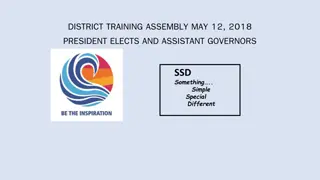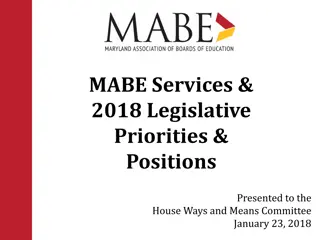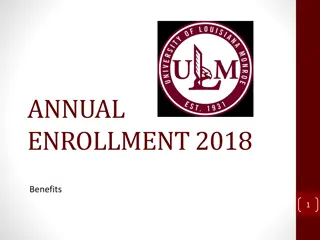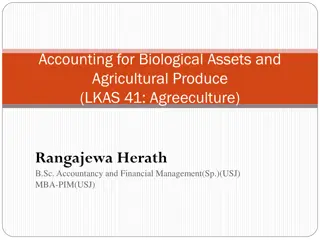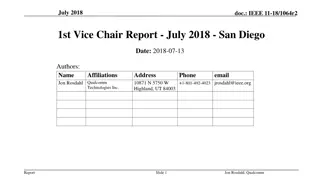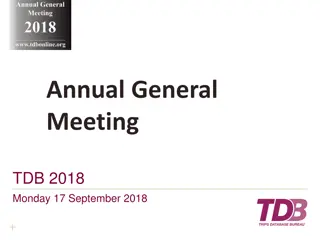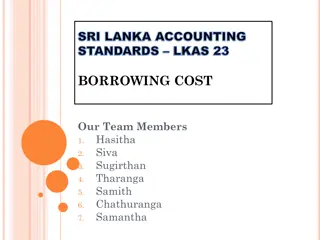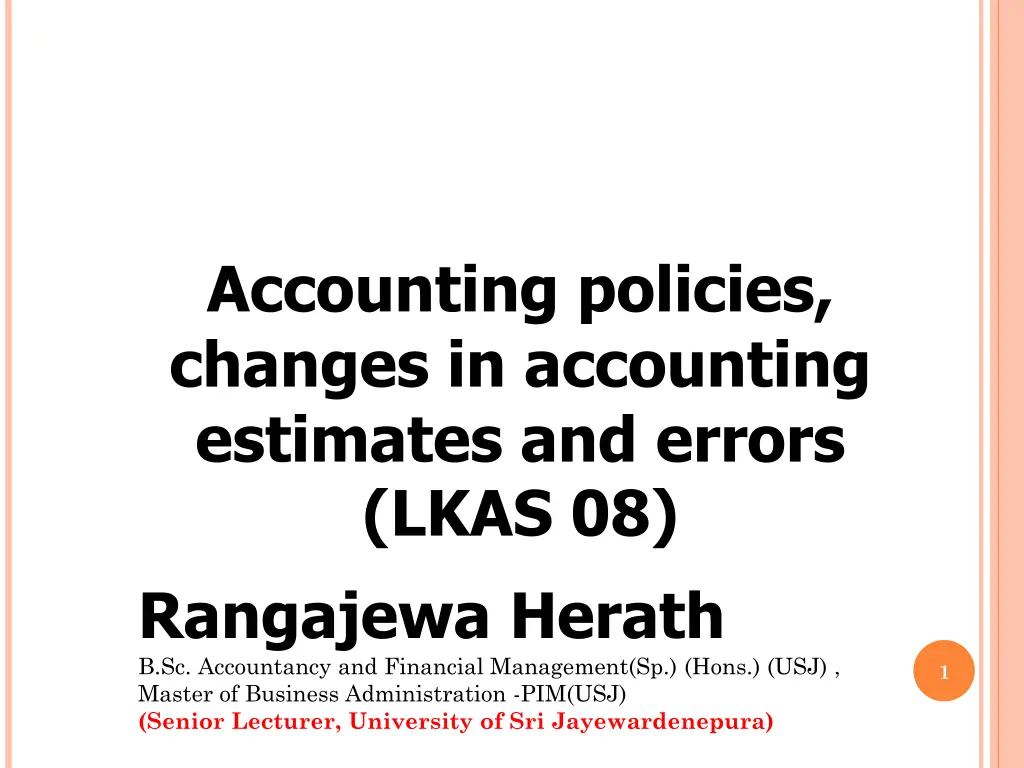
Understanding Changes in Accounting Policies and Estimates
Explore the world of accounting policies, changes in accounting estimates, and errors as per LKAS 08 guidelines. Learn about the selection of accounting policies, changes in policies, and their accounting treatment, including retrospective application.
Uploaded on | 0 Views
Download Presentation

Please find below an Image/Link to download the presentation.
The content on the website is provided AS IS for your information and personal use only. It may not be sold, licensed, or shared on other websites without obtaining consent from the author. If you encounter any issues during the download, it is possible that the publisher has removed the file from their server.
You are allowed to download the files provided on this website for personal or commercial use, subject to the condition that they are used lawfully. All files are the property of their respective owners.
The content on the website is provided AS IS for your information and personal use only. It may not be sold, licensed, or shared on other websites without obtaining consent from the author.
E N D
Presentation Transcript
Accounting policies, changes in accounting estimates and errors (LKAS 08) Rangajewa Herath B.Sc. Accountancy and Financial Management(Sp.) (Hons.) (USJ) , Master of Business Administration -PIM(USJ) (Senior Lecturer, University of Sri Jayewardenepura) 1
Accounting Policies, Changes in Accounting Estimates and Errors (LKAS 08) 2
Accounting policies Accounting policies are the specific principles, bases, conventions, rules and practices applied by an entity in preparing and presenting financial statements. e.g.: 3
Selection of Accounting Policies Accounting policies should be selected using the following methods. (1)Use of Accounting standard (2)Based on management Judgment 4
Changes in Accounting Policies An entity shall change an accounting policy only if the change: (a) is required by a Standard; or (b) results in the financial statements providing reliable and more relevant information about the effects of transactions, other events or conditions on the entity's financial position, financial performance or cash flows. 5
Accounting for Changes in Accounting Policies Change in accounting policies should be accounted retrospectively, except when the accounting policy was changed as required by a particular accounting standard and specific transitional provisions are available in such standard. 6
Accounting for Changes in Accounting Policies Retrospective application is applying a new accounting policy to transactions, other events and conditions as if that policy had always been applied. This retrospective application is subject to the limitation of impracticability. 7
Activity 1 Identify the examples for changes in accounting policies occurred as required by accounting standard. 8
Changes in Accounting Estimates Accounting Estimates Examples (1) useful assets of an asset (2) Residual value of an asset (3) Depreciation method (4) Impairment of receivables (6) Net realizable value (7) Provision for warranty (8) Provision for claim 9
Accounting for changes in Accounting Estimates The effect of a change in an accounting estimate shall be recognized prospectively by including it in profit or loss in: (a) the period of the change, if the change affects that period only; or (b) the period of the change and future periods, if the change affects both. 10
Activity 2 Mercury PLC purchased a plant for Rs.10 million on 01.04.2015 and estimated a useful life of 8 years with a residual value of Rs.2 million. On 01.04.2017 the useful life was revised as 6 years from the date of purchase and residual value was revised as %s.1.5 million. Required: Show the depreciation expense over the useful life Provide the extracts of the financial statements for the year 2015/16, 2016/17 and 2017/18. 11
Errors Prior period errors are omissions from, and misstatements in, the entity's financial statements for one or more prior periods arising from a failure to use, or misuse of, reliable information that: (a) was available when financial statements for those periods were authorized for issue; and (b) could reasonably be expected to have been obtained and taken into account in the preparation and presentation of those financial statements. 12
Accounting for rectification of prior period errors Prior period errors should be rectified retrospectively by adjusting the past. This is named as retrospective restatement . 13
Accounting for rectification of prior period errors Retrospective restatement is correcting the recognition, measurement and disclosure of the amounts of the elements of financial statements as if a prior period error has never occurred. 14
Activity 3 Mercury PLC purchased a machinery for Rs.5 million on 01.04.2014 and erroneously recorded in the machinery maintenance expense account. This machinery has a estimated a useful life of 5 years without a residual value. This error was decvtected and rectified when preparing the financial statements for year ending 31.03.2017. Required: Discuss the accounting treatment and impact on the financial statements due to rectification of this prior period error. 15




